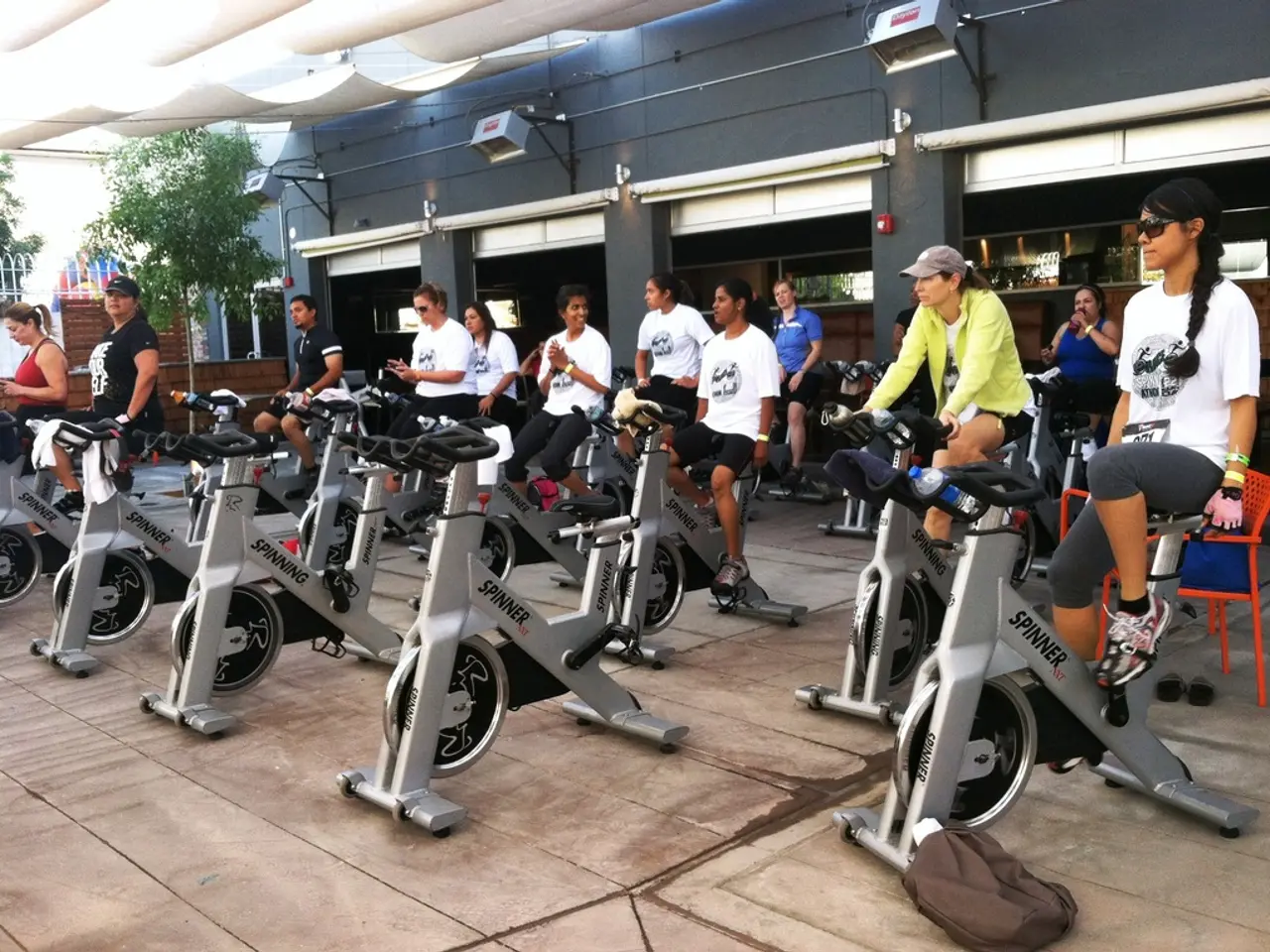Do you spend a significant amount of time seating?
In a report titled "How healthy does Germany live?" by the German health insurance company (DKV), it is emphasized that regular physical activity plays a significant role in maintaining good health. The World Health Organization (WHO) recommends that adults engage in at least 150 minutes of moderate-intensity aerobic activity per week, as well as muscle-strengthening activities on at least two days.
To incorporate these recommended activities into a busy daily routine, it's effective to break down the aerobic activity into manageable daily chunks. For instance, dedicating 20-30 minutes per day for brisk walking, relaxed cycling, or using a treadmill at home or work can accumulate towards the 150-minute weekly goal.
Scheduling two sessions per week dedicated to muscle-strengthening activities, such as bodyweight exercises, resistance bands, or weight training, on non-consecutive days can also help. This allows for muscle recovery between sessions.
If weekday time is scarce, taking advantage of "weekend warrior" style exercise sessions can be beneficial. For example, concentrating the 150+ minutes into one or two longer sessions per week can still provide health benefits.
Consistency is key when it comes to establishing a regular exercise routine. Making exercise a habitual part of your day can be reinforced by using cues or rewards. For example, walking or cycling to work, the supermarket, or appointments can become a regular part of your daily routine.
Mentally blocking inner excuses that prevent exercise, such as bad weather or a comfortable couch, can help motivate physical activity. Imagining how good you'll feel after a short run or walk can also be a powerful motivator. Listening to audiobooks during walks can also motivate physical activity and make exercise more enjoyable.
Taking the stairs instead of the elevator or escalator strengthens thigh, calf, and buttock muscles. Parking the car further away or getting off one stop earlier can increase daily movement. Using stairs for a short workout is recommended by the Health Knowledge Foundation.
Combining phone calls with movement, such as walking, can motivate walks. Building habits such as daily yoga or running at the same time and place can help establish regular exercise. Packing the sports bag the evening before, inflating the bicycle tire, or rolling out the yoga mat in the living room can remove obstacles to exercise.
Alternatively, at least 75 minutes of high-intensity physical activity per week, such as jogging or interval training, can be incorporated. The WHO states that every bit of movement is better than none.
By following these tips, it's possible to meet the recommended weekly activity guidelines and improve cardiovascular health and muscle strength, even with a busy lifestyle.
Incorporating science-backed fitness-and-exercise will not only assist in maintaining good health-and-wellness but also contribute towards meeting the World Health Organization's (WHO) recommendations of at least 150 minutes of moderate-intensity aerobic activity per week. To achieve this, it's good to schedule daily chunks of aerobic activity such as brisk walking or using resistance bands for muscle-strengthening activities. Embracing health-and-wellness involves making fitness-and-exercise a habitual part of one's daily life, whether through using cues or rewards, parking further away, or taking the stairs instead of the elevator.




